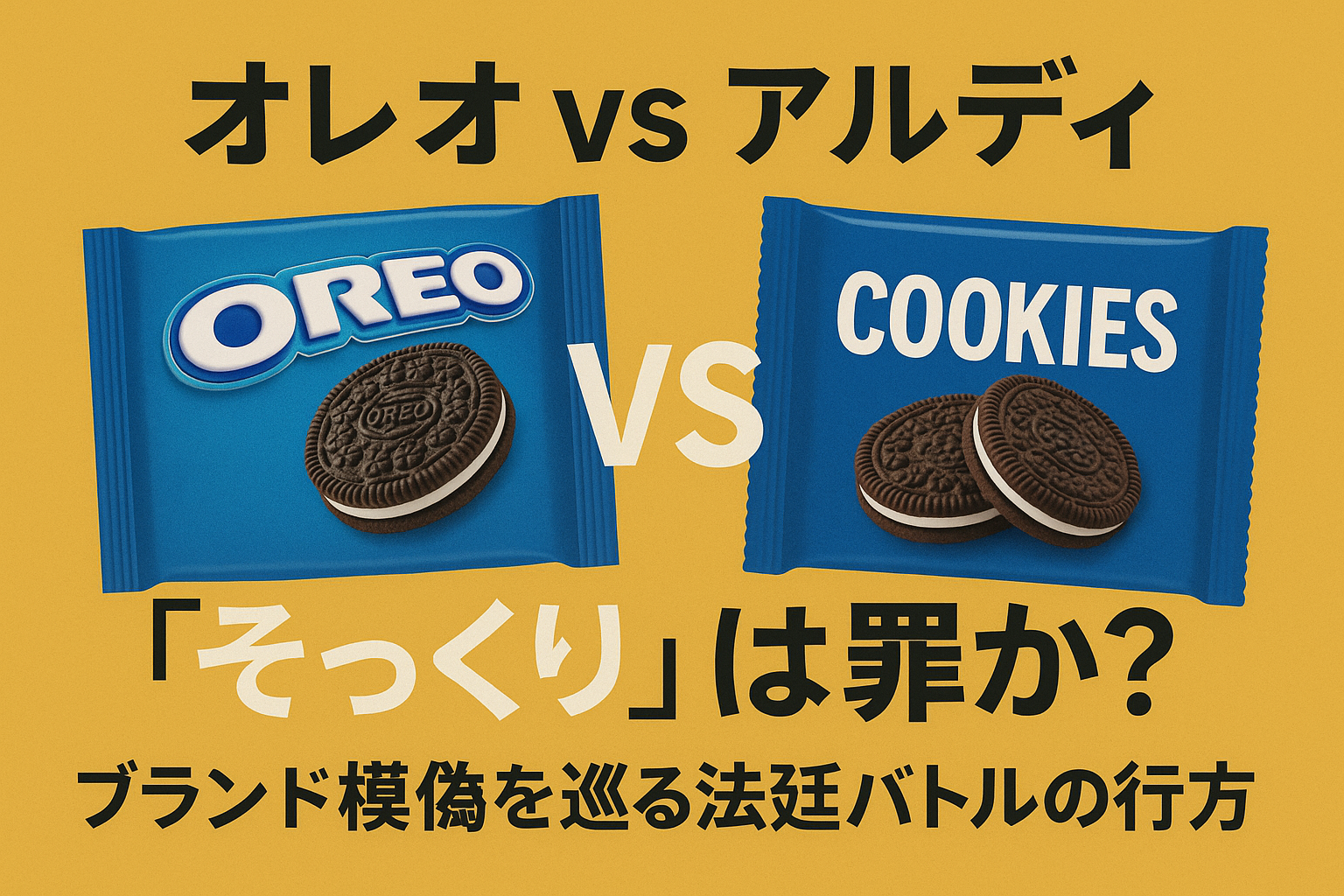“Is this really an Oreo?”
If you’ve ever had that thought, a serious battle in the world of brands may already be underway.
In May 2025, Mondelez International—the company behind iconic snacks like Oreo and Chips Ahoy!—filed a lawsuit against German discount supermarket giant Aldi. The accusation? That Aldi’s private-label cookies and crackers bear packaging that is “strikingly similar” to Mondelez’s products. The case centers on what’s known as trade dress—the visual appearance of a product that signifies its source to consumers.
Branding Is About More Than Just Taste
Mondelez’s concerns go beyond flavor or cookie shape. According to the complaint, Aldi’s private-brand packaging closely imitates Mondelez’s design, color scheme, and even the overall “feel,” to the point of causing consumer confusion. Mondelez argues that this undermines its brand value and misleads shoppers.
The key issue here is the idea that design is part of the brand. In the West, especially in the U.S. and Europe, a product’s appearance is increasingly treated as intellectual property. There are many precedents, such as the high-profile Apple vs. Samsung smartphone design case.
Aldi’s Low-Price Strategy and the Risk of Imitation
Aldi is known for offering high-quality private-label products at low prices, and it has been rapidly expanding in the U.S. in recent years. But this business model sometimes results in products that look strikingly similar to established brands.
In fact, Aldi has previously faced lawsuits over alleged imitation, including cases brought by Thatcher’s Cider in the UK and a financial services company. This isn’t their first brush with such allegations.
So why do consumers choose private-label products even when they know they’re not the original?
The Psychology of “Looks Similar but Cheaper”
What we see here is a tug-of-war between brand value and price.
On social media, some users have said things like, “I actually prefer Aldi’s version,” or “It’s more cost-effective than Oreo.” Taste test videos and comparison posts are becoming increasingly popular.
This isn’t just about money—it reflects a broader cultural question: At what point does inspiration become imitation? And where does uniqueness begin?
The Outcome Could Shape Future Private Brand Strategies
Mondelez is seeking damages and a permanent injunction against the sale of similar Aldi products. Depending on the court’s decision, the ruling could significantly impact the packaging strategies of private-label brands across the industry. If Aldi loses, companies may be forced to develop more clearly differentiated designs.
On the other hand, if Aldi wins or reaches a favorable settlement, it may embolden other private-label makers to push the boundaries of imitation even further.
Between Imitation and Originality
This isn’t just a story about cookies.
It raises fundamental questions: What makes a brand? How much imitation is too much? Where do consumers find value—in authenticity or affordability? These issues are now being debated in court, but their outcomes may affect everything from our shopping habits to corporate branding strategies.
Depending on the verdict or settlement, the very nature of private-label branding could be up for reevaluation.
So the question remains: How close to an Oreo can something be… and still be allowed?

